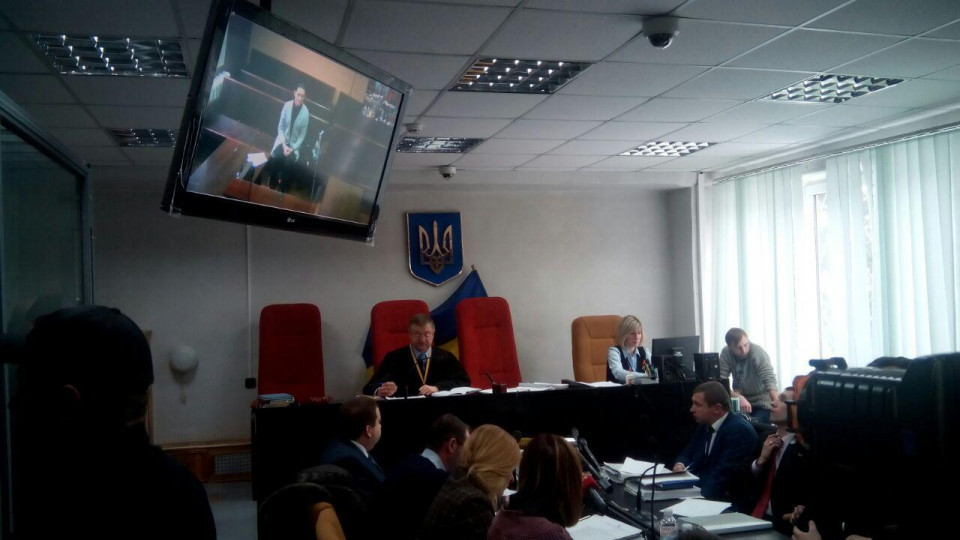I constantly strive to develop and acquire new knowledge, my experience and additional education confirm this.
Judicial process in Ukraine
A court session in Ukraine is an official procedure during which the court considers and decides civil, administrative, criminal or economic cases. Court hearings are held in accordance with the procedural legislation of Ukraine and have several key characteristics:
- Most court hearings in Ukraine are open to the public. This means that anyone can be present in the courtroom, except when matters involving confidential information are being discussed, or when openness may jeopardize the interests of justice.
The judicial process in Ukraine is based on the principle of competition between the parties. This means that the parties have equal opportunities to present their arguments, evidence, question witnesses and mutually counter-argue each other's positions before a judge or panel of judges.
Judges perform their duties directly and independently, exclusively on the basis of the law. They are obliged to be impartial and not allow any interference in their activities.
Every decision made by the court must be justified. The court is obliged to indicate what evidence was evaluated, how the rules of law were applied, and why this or that decision was made.
In case of disagreement with the court's decision, the parties have the right to appeal it in the appeal procedure, which is also a court session, but at a higher level of the judicial hierarchy.
Each stage of the judicial process is regulated by strict procedural terms established by legislation, which helps to ensure timely consideration of cases.
A court session is an important component of justice, which ensures the protection of the rights and legitimate interests of citizens and organizations, the implementation of the principles of legality and justice.
Participation in the court session of the lawyer of the Legal Marketplace "Consultant"
A lawyer's participation in a court hearing in Ukraine plays a key role in ensuring the rights and interests of his client.
The lawyer acts not just as a representative of the party, but as a specialist who is able to effectively protect the rights of his clients with the help of in-depth knowledge of legislation and procedural norms.
Here are the main aspects related to the participation of a lawyer in a court session:
- Preparation for the hearing - the lawyer must carefully prepare the case for the trial. This includes gathering and analyzing evidence, preparing procedural documents, formulating arguments to support the client's position, and planning a defense strategy.
Representation of the client's interests in the court session - the lawyer acts on behalf of his client, representing his interests. A lawyer has the right to address the court with oral and written statements, ask questions of witnesses, express objections to the evidence of the opposing party, and submit evidence in favor of his client.
Participation in interrogations - the lawyer actively participates in the interrogation of witnesses and experts, ensuring his client's right to defense. He can ask questions aimed at clarifying the circumstances of the case, as well as at identifying contradictions and inaccuracies in the testimony.
Defense in the court session - the lawyer provides protection in the court of the client by reasoned appeal of accusations or claims, presentation of evidence of innocence or mitigating circumstances. He may also call his own witnesses to support the client's position.
Preparation for a court hearing is a critically important stage in a lawyer's work, which requires a thorough approach and great attention to detail.
The lawyer for the trial must gather all possible evidence relevant to the case. These can be documents, photographs, video recordings, electronic data, witness statements, expert opinions and others. It is also important to assess the strength and weakness of each piece of evidence, its legality and compliance with procedural norms.
Question
What does the preparation of procedural documents include?
Respond
The preparation of procedural documents includes the drafting of pleadings, responses to claims, appeals, motions, appeals and other legal documents necessary for court proceedings. Each document must be legally competent, reasoned and meet the requirements of the law.
Question
Defense in a court hearing is it?
Respond
Defense in a court hearing is a critical aspect of a lawyer's work, requiring him not only to have deep legal knowledge, but also to be able to effectively use various legal tools to protect his client's interests.
- Representative in court, the lawyer develops arguments to defend the client's position, analyzing the case from the point of view of current legislation and court practice, representing interests in court. It is important to identify key legal issues that may affect the court's decision and prepare appropriate counterarguments for possible challenges from the opposing party.
Representation of interests in court, defense in court, the lawyer develops an overall defense strategy, taking into account all aspects of the case, including psychological and tactical aspects. This may include choosing the optimal line of defense, deciding which witnesses will be called to testify, and how the attorney will respond to changes in circumstances during the court session.
At the court hearing, the lawyer presents legal arguments supporting the defense's position. This includes interpreting legislation, analyzing case law and applying legal doctrines to the specific circumstances of a case.
Lawyer in court. A lawyer submits all the necessary documents to the court and must be ready for the dynamic nature of the court session, able to quickly respond to new information, changes during the process and maintain a strategic approach to conducting the case. The ability to adapt and communicate effectively are key to this process.
At the final stage of the trial, the lawyer has the right to make a closing speech, where he once again emphasizes all the key arguments of the defense, emphasizes the weaknesses of the prosecution's position and calls for the acquittal of his client or the adoption of another decision that would be favorable to him.
Effective defense at a court hearing requires not only a deep understanding of the law, but also a strategic approach and high communication skills on the part of the lawyer.
In case of disagreement with the court's decision, the lawyer can file an appeal, continuing to protect the interests of his client at the next stages of the court system. The professional participation of a lawyer in a court hearing is important for ensuring justice and fair consideration of the case, as it allows for the realization of the right to a qualified defense, lawyer for court.

































